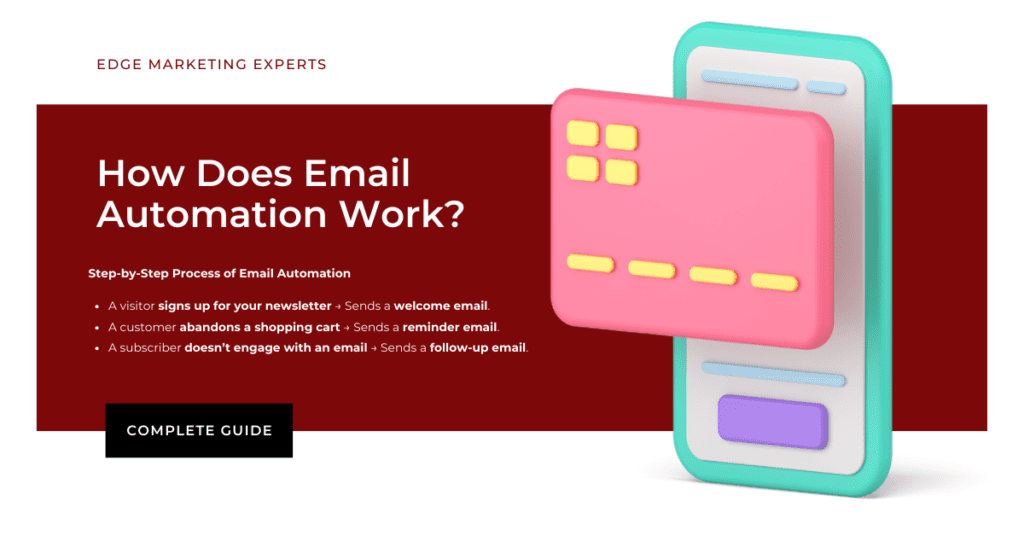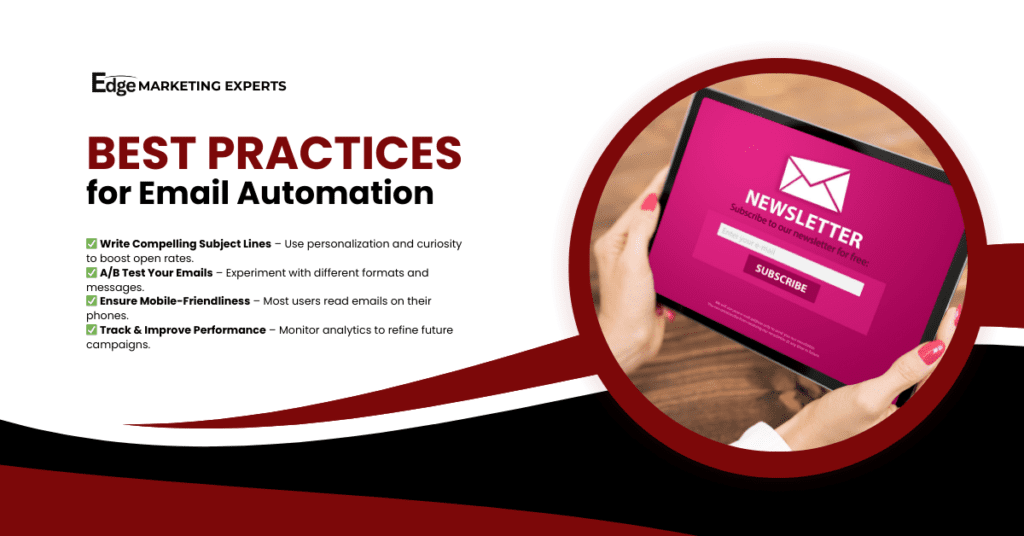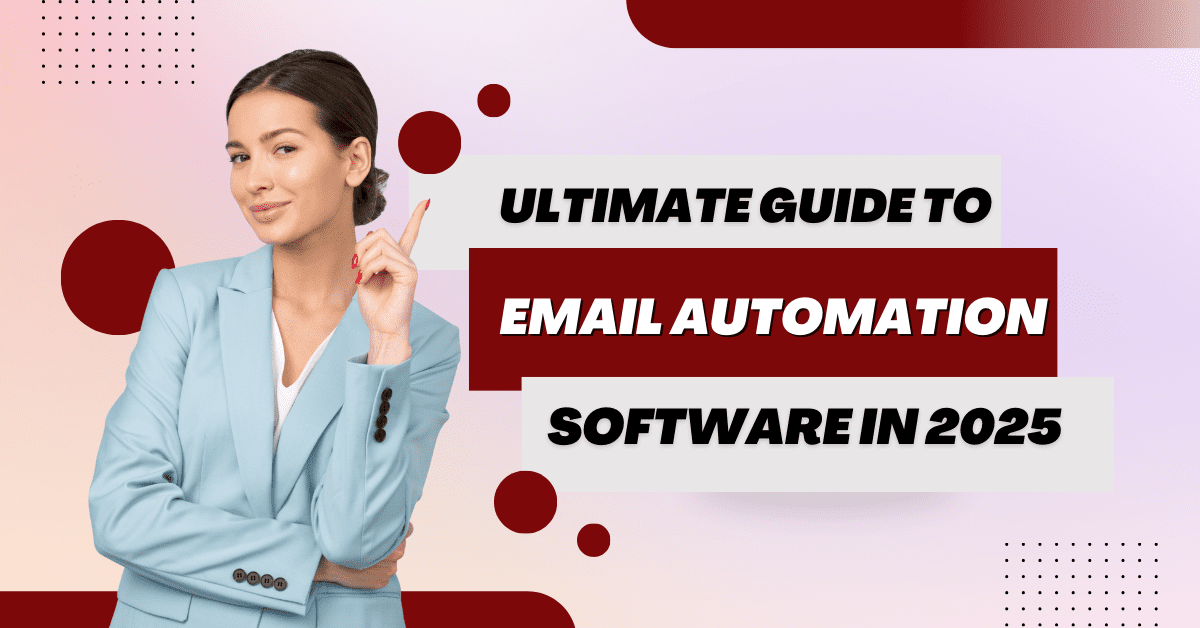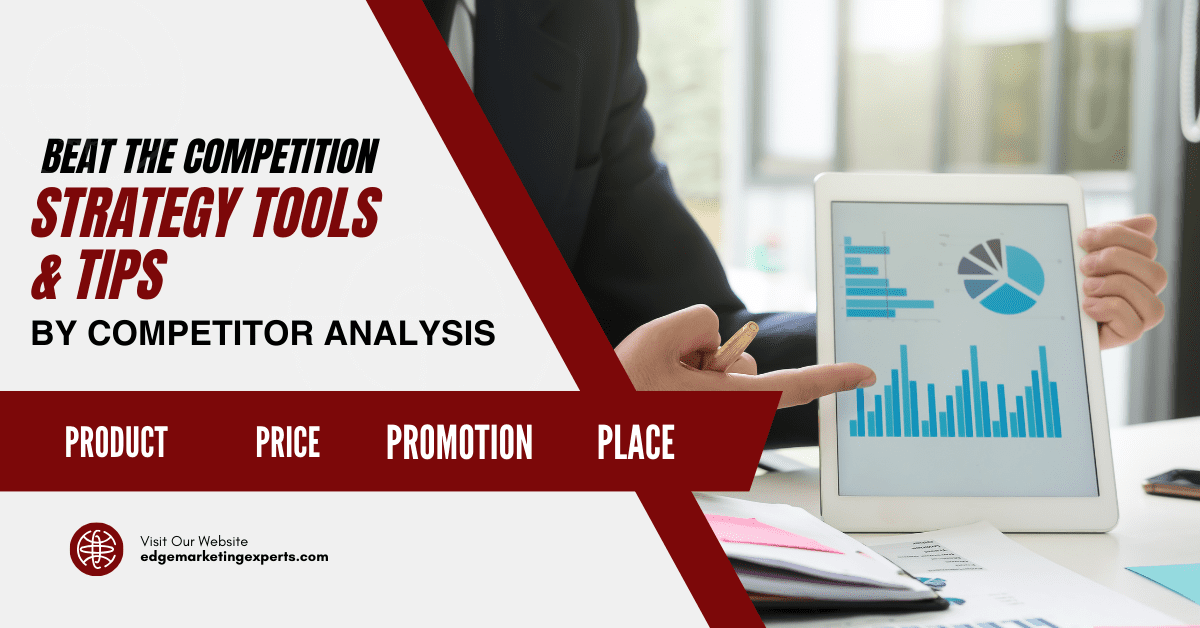Introduction
Email automation software is a tool that makes it easier for all types of businesses to reach out to their stakeholders and improves the quality of communication between them to easily address their needs and desired tasks.It helps to get their engagement, build trust, and also increases sales in a very short period. If you use the manual method of email marketing and have to send emails to hundreds or thousands of people, it can be a very time-consuming process.
That’s where email automation software comes into play.We can send quality messages to our target clients using email automation services in a professional way of communication.
Imagine welcoming a new subscriber, reminding a customer about an abandoned cart, or following up after a purchase—all automatically!
In this guide, we’ll explore what email automation software is, how it works, its benefits, best practices, and the top tools to use in 2025. By the end, you’ll understand how to integrate email automation into your marketing strategy and boost your business’s efficiency.
What is Email Automation Software?
Email automation software is a tool that allows businesses to send targeted, pre-scheduled, and personalized emails to subscribers based on their actions, preferences, or behaviours.
Email automation software enables businesses to deliver personalized, pre-scheduled emails to subscribers based on their actions, preferences, and behaviour, ensuring targeted and timely communication.
Unlike manual email campaigns, which require businesses to draft and send emails one by one, automation software does the work for you.
How Email Automation Can Be Considered Better Than Manual Email Marketing
Aspect
Sending Method
Personalization
Efficiency
User Engagement
Follow-ups
Traditional Email Marketing
Manually scheduled
Limited (mass emails)
Time-consuming
Generic, low open rates
are done manually
Email Automation
Triggered by user actions
Highly personalized content
Saves time and effort
Higher open and click-through rates
Automatically sent based on behaviour.
Key Features of Email Automation Software
Triggers & Workflows – Emails are sent based on specific user actions.
Personalization & Segmentation – Messages are tailored to user preferences.
Analytics & Tracking – Monitors open rates, conversions, and engagement.
How Does Email Automation Work?

Step-by-Step Process of Email Automation
- A visitor signs up for your newsletter → Sends a welcome email.
- A customer abandons a shopping cart → Sends a reminder email.
- A subscriber doesn’t engage with an email → Sends a follow-up email.
Example of an Email Automation Workflow
Trigger: A user signs up for an e-book.
Automation Workflow:
- Day 1: Sends the e-book download link.
- Day 3: Send an email with additional resources.
- Day 7: Offers a free consultation or product demo.
- Day 14: Sends a discount offer to encourage conversion.
Benefits of Email Automation
1 . Timely responses
It increases the likelihood of customer interactions and sales.
2. Enhances Customer Experience
- Sends personalized messages based on user behaviour.
- Keeps customers engaged with relevant content.
3. Data-Driven Decision Making
- Email automation software provides analytics on user engagement.
4. Consistency in Communication
- Ensures no missed opportunities in customer interactions.
- Builds trust through regular and structured email engagement.
Best Email Automation Software in 2025
1. HubSpot – Best for Large Businesses
Features: Advanced CRM integration, AI-powered automation, robust analytics.
Ideal For: Enterprises and businesses with complex marketing needs.
Businesses and individuals looking to create and manage email marketing campaigns, offering tools for building lists, sending automated emails, designing emails, and analyzing campaign performance.
2. Mailchimp – Best for Small Businesses
Features: Pre-built workflows, easy-to-use templates, audience segmentation.
3. ActiveCampaign – Best for E-commerce & SaaS**
Features: Behavioral triggers, predictive content, AI-driven recommendations.
Ideal For: Online stores and software companies.
4. Klaviyo – Best for Shopify Users
Features: Deep integration with Shopify, dynamic product recommendations.
Ideal For: E-commerce businesses that need advanced email targeting.
5. ConvertKit – Best for Creators & Bloggers
Features: Simple automation rules and customizable landing pages.
Ideal For: Content creators, influencers, and online educator
Best Practices for Email Automation

✅ Write Compelling Subject Lines – Use personalization and curiosity to boost open rates.
✅ A/B Test Your Emails – Experiment with different formats and messages.
✅ Ensure Mobile-Friendliness – Most users read emails on their phones.
✅ Track & Improve Performance – Monitor analytics to refine future campaigns.
The Future of Email Automation
Email automation is evolving rapidly. In 2025 and beyond, expect:
🚀 AI & Predictive Analytics – AI will analyze user behaviour and predict engagement patterns.
💬 Hyper-Personalization – Emails will be even more tailored to individual preferences.
🎙️ Voice-Activated Email Interactions – AI assistants like Alexa and Siri may enable email responses via voice commands.
The brands that adapt to these trends early will have a major advantage over their competitors.
Conclusion
By automating the email marketing process, businesses save valuable time and resources while delivering personalized, timely, and relevant messages.
With a wide range of software options available in 2025, businesses of all sizes can leverage powerful features such as personalized content, advanced segmentation, and automated workflows to boost their marketing efficiency. As technology continues to evolve, expect even more innovative features, including AI-powered insights, hyper-personalization, and voice-activated interactions, to further enhance email automation’s capabilities.
By adopting best practices and staying ahead of emerging trends, you can ensure that your email marketing strategy remains effective and competitive in the ever-changing digital landscape. Embrace email automation today and unlock the potential to scale your business, increase customer loyalty, and drive higher conversions.





